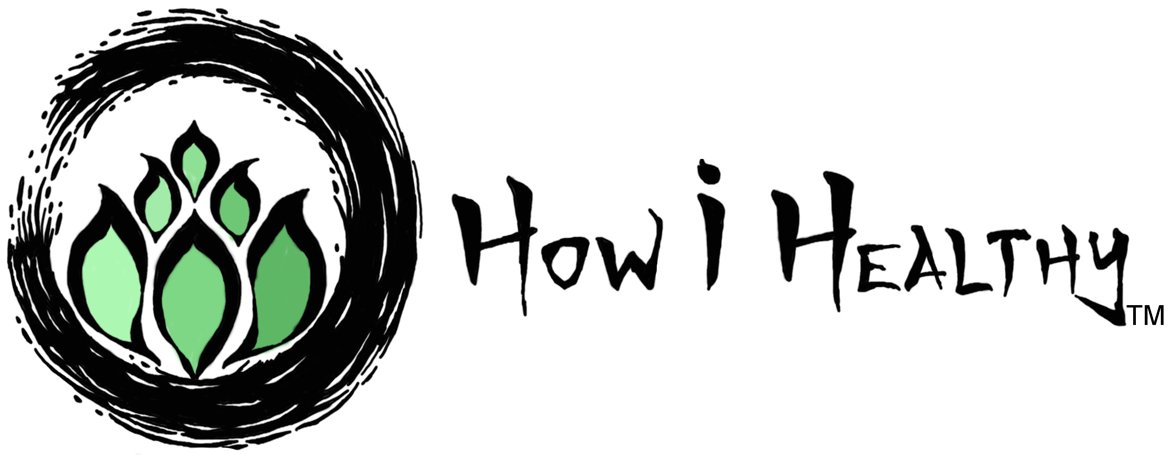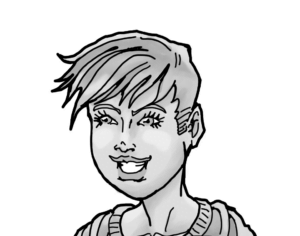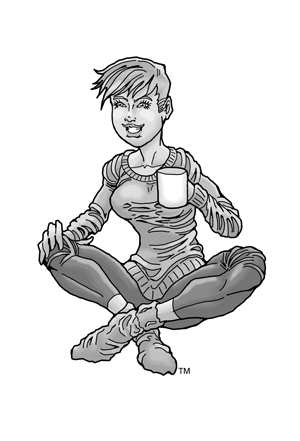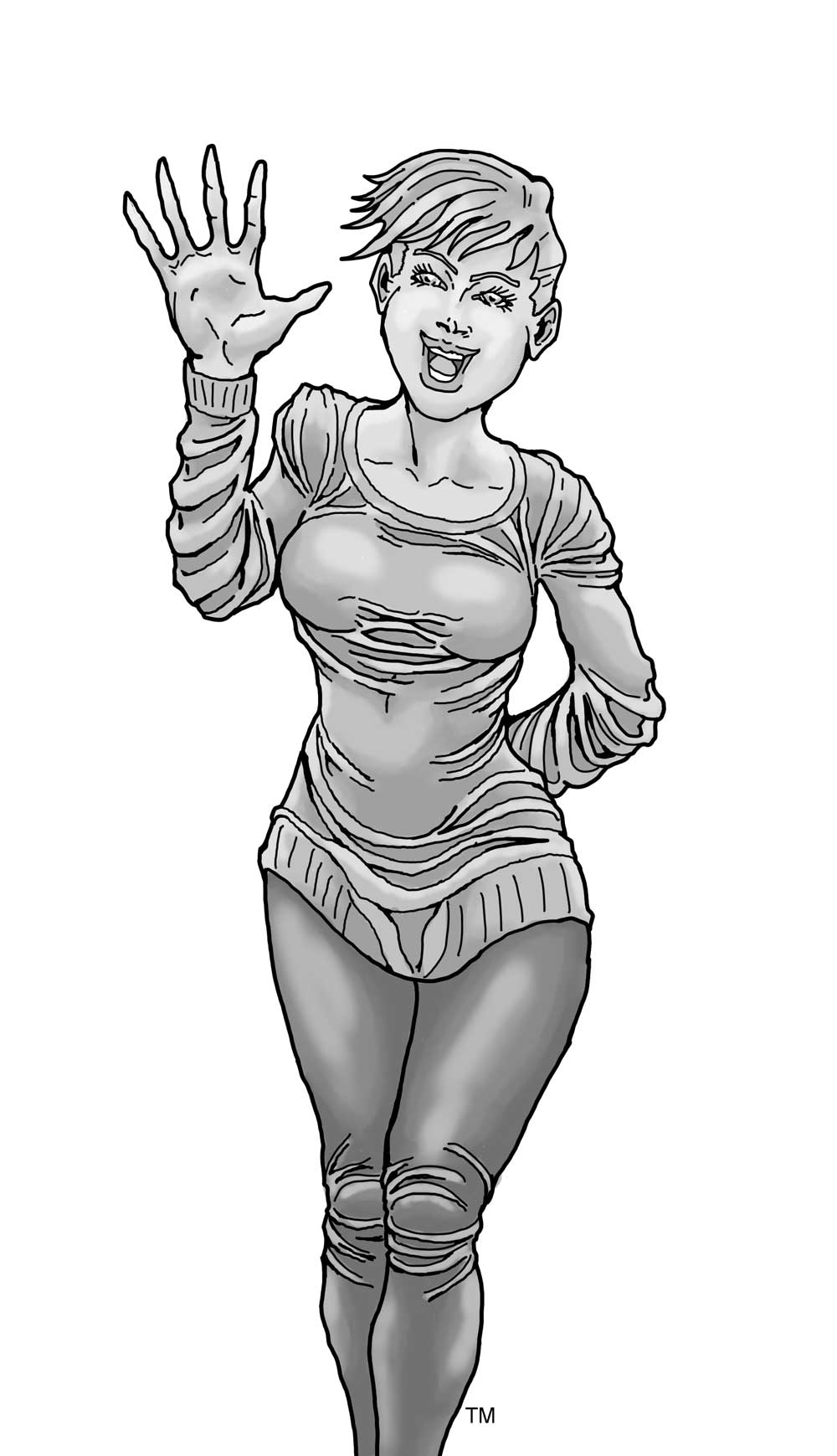In This Article, We'll Cover:
- Why Laundry Products Are Not Clean
- Why Water-Free Laundry Matters
- Why Laundry Strips/Pods Are Greenwashed Products Polluting Our Environment
- How i Healthy’s Favorite Natural Laundry Products by Meliora®
Laundry detergents, bleach, fabric softeners…it’s supposed to get things clean. But underneath all that fresh laundry scent? Carcinogens, VOCs, hormone disrupters, environmental pollutants, expensive water-bloated formulas, and plastic. So much plastic.
But there are better natural laundry options!
Enter Meliora ®: Natural laundry care products that work, and without watered down formulas or questionable ingredients. It’s actually green, and it actually cleans.
But first, how did we get here? What problems does Meliora ® solve?
Problems with Laundry Products
Harmful Chemicals
Laundry detergents, dryer sheets, laundry softener, and stain removers can contain things like:
- BisphenolA (BPA)
- Common allergens like: benzisothiazolinone, benzyl benzoate, cocamidopropyl betaine, decyl glucoside, lauryl glucoside, methylisothiazolinone, methylchloroisothiazolinone, phenoxyethanol, and propylene glycol.
- “Fragrances”, aka parabens & phthalates.
- PFAS or “Forever Chemicals”
- Triclosan
- Volatile Organic Compounds (VOCs): including benzene (known carcinogen), acetaldehyde (probable carcinogen), and toluene.
(12, 13, 14, 15, 16)
These chemicals can link to health issues like cancer, infertility, hormone disruption, pulmonary disease, neurological dysfunction, metabolic body weight/mass imbalance, and dermatological conditions. (16)
Plus, all those chemicals, especially fragrances, vent out of dryers. These emissions can be environmental pollutants as ell. (16)
Even “Free and Clear/Gentle” laundry products can contain cancer causing chemicals. (16)
(Want more? The Chemical Guide explores why these chemicals are harmful, & how to limit exposure)
Water-based Formulas and Plastic Packaging
I detest water-based products.
My Best Sustainable & Ethical Tips explains why.
But in brief, adding water (or any liquid) to a product adds bulk and weight,
Added bulk and weight matters.
Because:
- Added weight = heavier products
- Added bulk = fewer products per truck/boat/plane shipment
- Fewer products per shipment = more shipments
- More shipments = more carbon emissions
(1)
Transportation emissions are one of the biggest carbon footprints in America. (2)
And adding water means adding plastic packaging.
Eliminating water/liquid from products means:
- Lighten loads
- Reduce product size
- Improve transportation efficiency
- Use compostable packaging solutions
- Not pay for something we already have (water)
That translates into reducing carbon footprints!
And that’s why most pre-made cleaners don’t impress me.
Even “natural” or “non–toxic” ones.
I like concentrated & water-free products, like powders or solid soaps. Then I add water.
My favorite water-free products?
Unpaste™ Tooth Tabs instead of tube toothpaste.
Vermont Bulk Bar Soap instead of a body wash.
Suds & Co Shampoo/Conditioner Bars.
And laundry products can be water-free too!
But look out for greenwashed “water-free” pods and laundry strips. Because they come with fine print.
Laundry Strips & Pods Are Greenwashing
Have you seen it? Laundry pods and laundry sheets proclaiming “plastic-bottle free!”?
That may be true, but it’s not the whole story. It’s a classic greenwash misdirection.
Those dissolvable laundry strips or laundry pods contain PVA or polyvinyl alcohol.
What’s PVA?
Polyvinyl alcohol conjures up images of a liquid with the word ‘alcohol’ in the name.
But it’s not. PVA is plastic.
Specifically, PVA is a polymer “dissolvable plastic” used as a film. (6)
Don’t be fooled.
PVA might be a "dissolvable" plastic, but that doesn’t mean it disappears.
Just like salt in water, it might dissolve, but that water is still salty.
(6)
And PVA needs specific circumstances met to breakdown or biodegrade. (6)
Currently, PVA does not biodegrade in wastewater treatments. Instead, PVA is dumped into the environment with treated wastewater. (6)
Sound familiar? PVA looks a lot like microplastic. It’s there, we can’t see it, we can’t filter it, it doesn’t biodegrade easily, and it’s contaminating the environment with poorly understood consequences.
PVA, in very certain conditions, might degrade over time in the environment. But this degradation produces ethylene. Ethylene is a hormone utilized by plants. The environmental impact of ethylene derived from PVA contamination is currently unknown. We don’t know what this extra ethylene does to ecosystems. (6)
And for the PVA that does not degrade? It can inhibit oxygen transfer for aquatic life. What does that mean? We don’t know. There isn’t enough data or research to understand the consequences. (6)
We do know that PVA has been detected in breast milk. (17)
Beyond that though, there is not much we know.
The extensive (and growing) use of PVA in consumer products is concerning. PVA as an environmental pollutant or health hazard is poorly understood. The short and long-term impacts of PVA contamination are not well studied or documented. (6)
PVA is literally a downstream problem.
Perhaps PVA is not so bad. Maybe it’s okay to use. But without comprehensive research guiding best practices or setting environmental standards, we don’t know for sure.
PVA is an example of something entering our ecosystems that we have little understanding of. Just like PFAS / “forever chemicals”, and just like microplastic beads before that. It might take years until we see/understand the impacts. And then decades till we fix it. If we even can.
That’s why PVA is not a sustainable or eco-friendly choice at this time. There’s not enough data to say it is or isn’t.
Even when greenwashed products claim otherwise.
So, what other options are there? Awesome options!
Meliora®
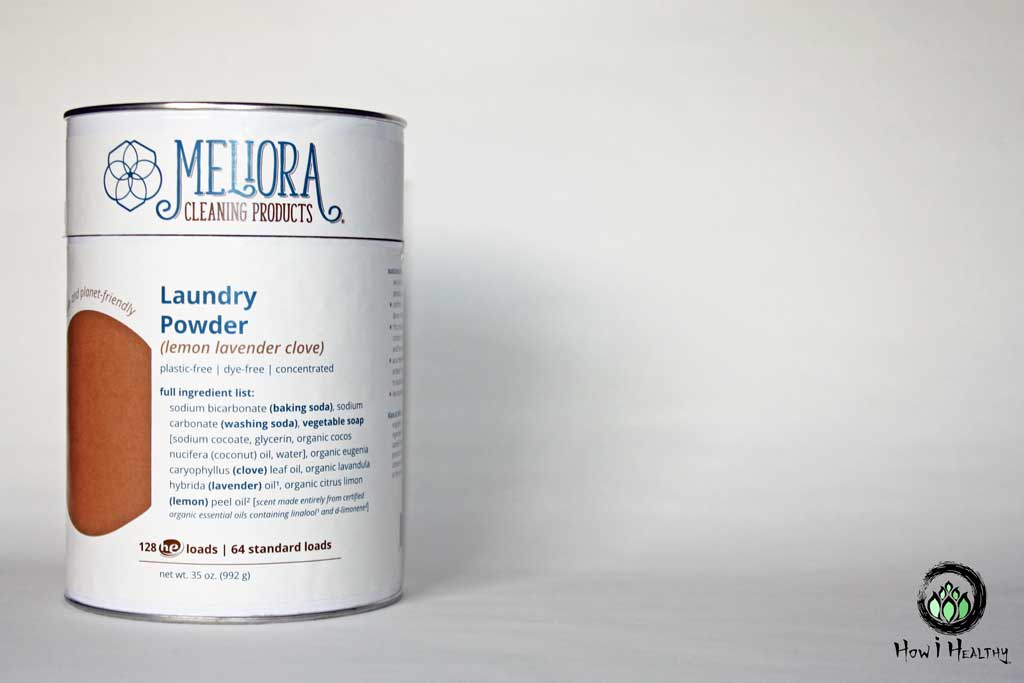
So with PVA greenwashing, plastic jugs, and questionable ingredients what do we do?
We want:
- Natural laundry products with ingredient transparency and safety.
- No plastic or PVA.
- A company with third-party verified environmental commitments.
Enter: Meliora® natural laundry products.
They do all that and more! That’s because they also meet How i Healthy’s rigorous standard too:

The How i Healthy Standard
Our favorite products/brands meet as many of these conditions as possible.
Healthy body, healthy planet, & healthy sex means:
- Align with My Best Sustainability & Ethical Tips
- As Local as Possible
- Cruelty-Free
- Doesn’t Contain these Harmful Chemicals
- Environmental and/or Socially Responsible Company
- Ethically Made: Fair Trade, Living Wages, Safe Worker Conditions
- Gender-inclusive
- No Greenwashing Scams
- Organic & Sustainably Harvested Ingredients
- Pass How i Healthy’s Counterfeit Vetting Process
- Purchased Through/From an Ethical Shop/Marketplace.
- Zero Waste / Plastic & Bioplastic-free / Home Compostable
- 1% for the Planet®, B Corporation®, Green American Business®, or similar credentials
It’s a tough standard to live up to. But Meliora® is up to the challenge.
Check them out:
Certifications & Business Practices
Certifications
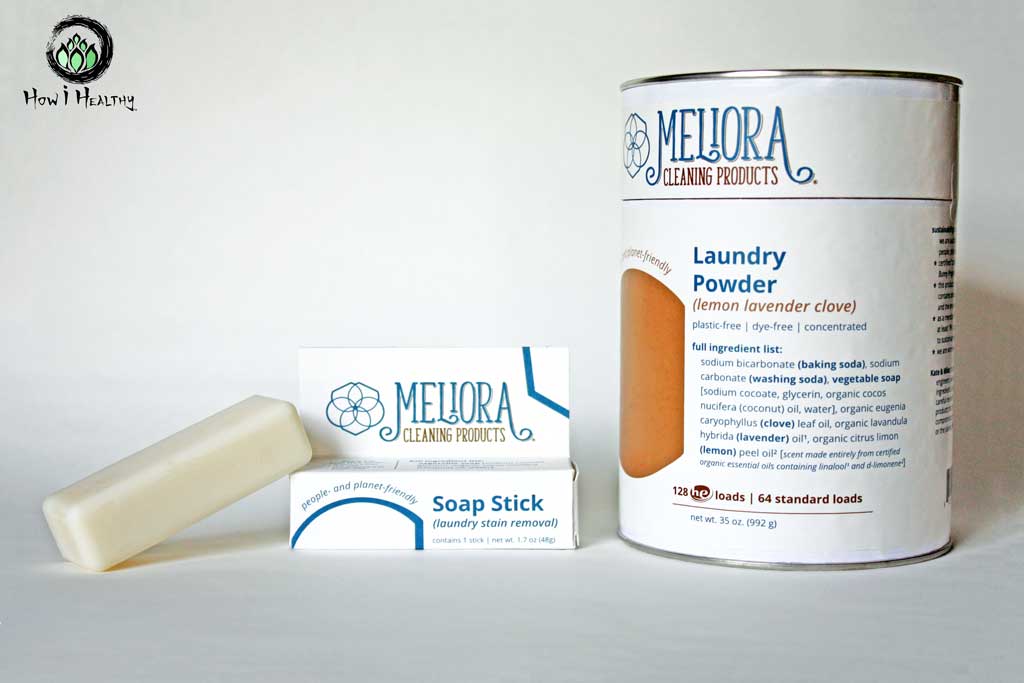
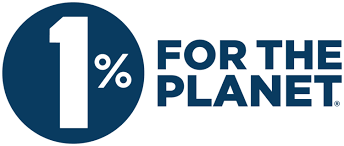
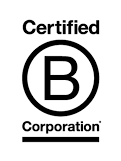
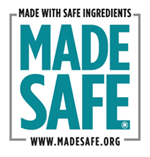
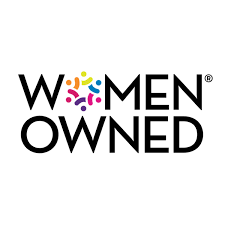
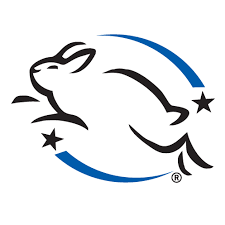
- 1% For The Planet
- Certified B-Corp®
- Leaping Bunny®
- Made Safe®
- Woman-Owned (Female Founder Collective®)
Business Practices
More awesome stuff?
- Annual sustainability reports available online with new sustainability goals every year!
- Eliminated all single-use plastic from product line in 2020.
- Lobbied in support of the cleaning product Right-To-Know Act. This act would require ingredient listings on product packaging.
- Made in Chicago by people paid a livable wage.
- Offers plastic-free refill bags, packaging-free, and Zero-Waste product packaging options.
- Through 1% For the Planet® and Women’s Voices For The Earth, Meliora® donates 2% of annual revenues to environmental and charitable nonprofits. Also donates to My Black, My Hood, My City, a Chicago-based and Black-founded/operated nonprofit.
- Uses a local Chicago-based supplier to source global organic & sustainably grown/produced coconut oil and uses Wisconsin-grown sunflower oil.
(3, 4, 5, 7, 8)
No wonder Meliora® is one of My Favorite Products!
My Favorite Natural Laundry Products
Natural Laundry Powder
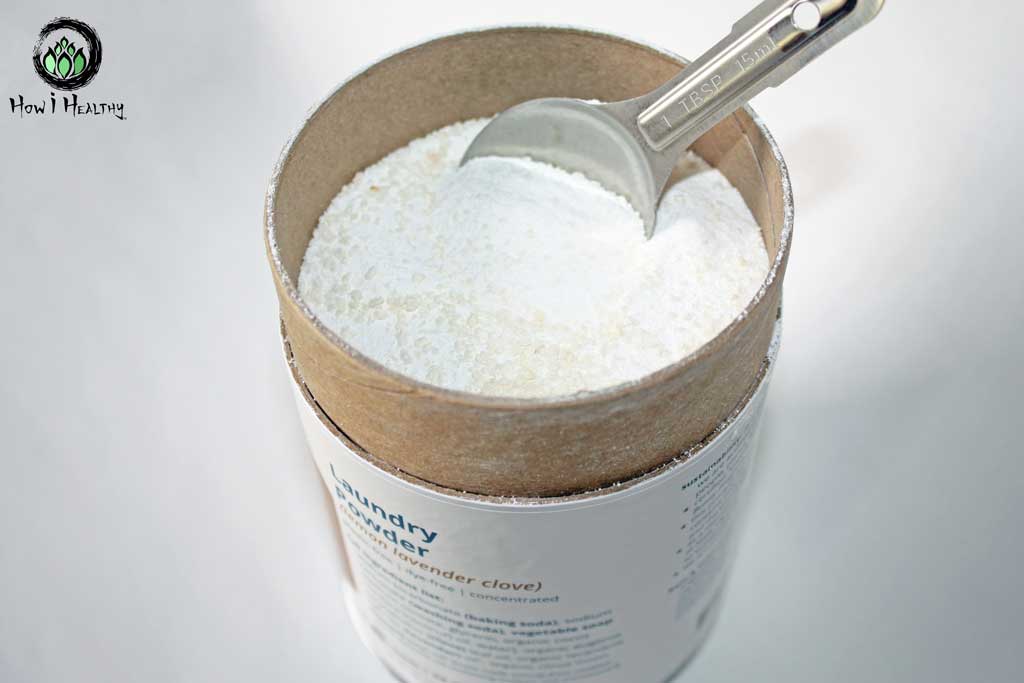
Product Kudos
Origin: Chicago, Illinois. USA. (3)
End of Life: Recyclable/home compostable paper packaging, recyclable paper/steel tube.
Ingredients/Packaging:
- Meliora® Laundry Powder: Baking Soda, Washing Soda, Vegtable Soap, Organic Coconut Oil, Glycerin, Organic Essential Oils. (9)
- Includes reusable metal scoop.
- Recyclable uncoated paper label over paper canister with steel ends. Home compostable paper refill bags.
- Recyclable paper refill bags without metal scoop available.
Why It’s Awesome:
- AMAZING smell! I adore the Lemon-Lavender-Clove blend. The spicy clove lingers just a hint after drying. It has subtle but satisfying fresh natural laundry smell. I like the hint of scent just for me. There is an unscented option if that’s more your jam.
- PVA-Free (polyvinyl alcohol). That means actually plastic free. No greenwashed laundry sheets or pods here!
- Water-free. No watered down ingredients, just actual cleaning agents.
- Works! Laundry powder needs to work, otherwise what’s the point? This formula is gentle on clothes but tough on dirt. You’ll get clean clothes without the questionable ingredients. Simple as that.
- Works for both high efficiency and regular washers.
Oxygen Bleach
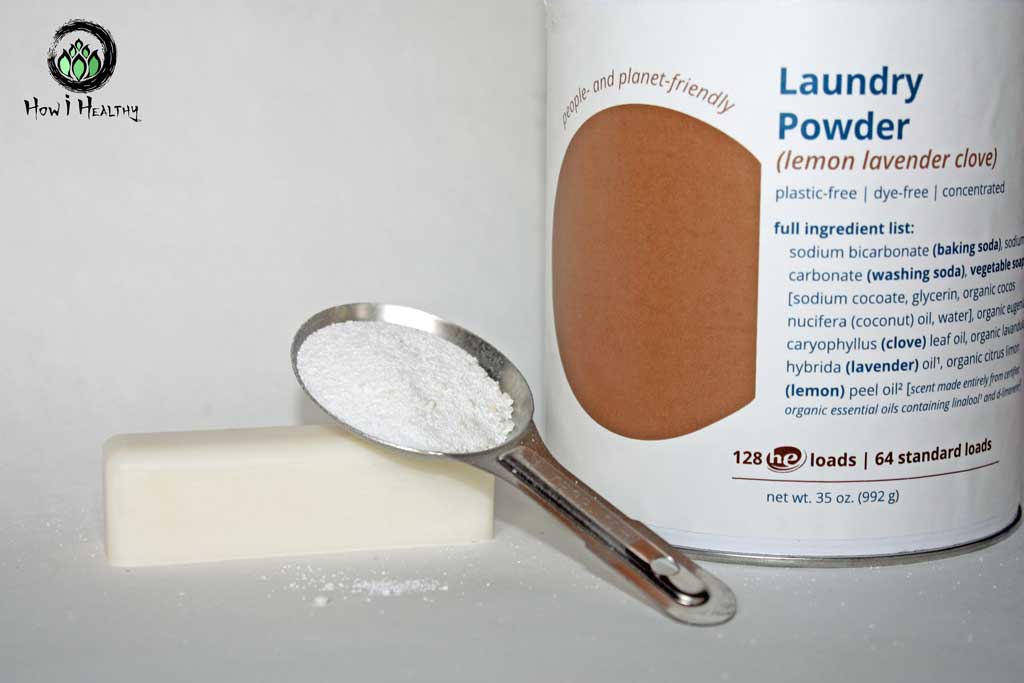
Origin: Chicago, Illinois. USA. (3)
End of Life: Recyclable/home compostable paper packaging, recyclable paper/steel tube.
Ingredients/Packaging:
- Meliora® Oxygen Brightener: Sodium Carbonate peroxide, Washing Soda. (10)
- Includes reusable metal scoop.
- Recyclable uncoated paper label over paper canister with steel ends. Home compostable paper refill bags.
- Recyclable paper refill bags without metal scoop available.
Why It’s Awesome:
- Bleach alternative that actually works.
- Color safe stain removal for stubborn stains. Good for whites and colors alike.
- No bleach, chlorine, or chemicals. Instead, when the peroxide touches water from the washer it releases oxygen. This oxygen lifts stains and dirt from clothes. Simple chemistry.
- No more accidental bleach spills or mistakes.
- Oxygen bleach is MADE SAFE® That means it doesn’t contain chemicals that can harm humans, animals, or ecosystems.
- Odor eliminator. Works great for items needing extra odor busting.
- Water-free. Only concentrated active product, no fillers here!
Stain Stick
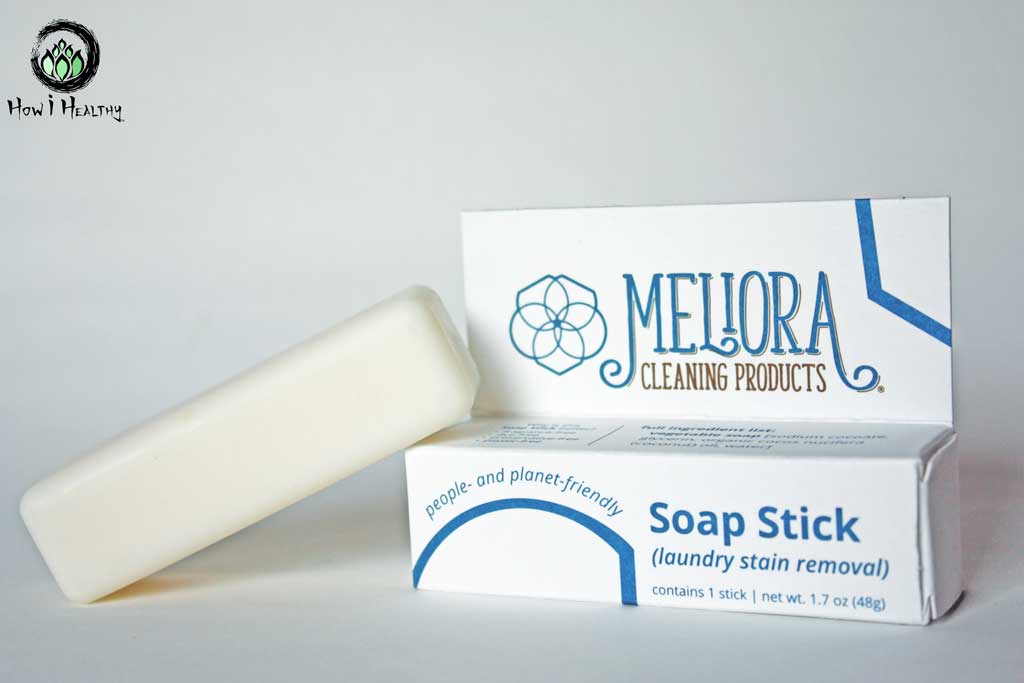
Origin: Chicago, Illinois. USA. (3)
End of Life: Recyclable/home compostable paper packaging.
Ingredients/Packaging:
- Meliora® Soap Stick: Vegetable Soap, Organic Coconut Oil, Glycerin. (11)
Why It’s Awesome:
- Excellent pre-treatment for tough stains. Works on oil-stained shirt collars too!
- Super concentrated, water-free formula eliminates stains without bleach or other chemicals.
- Plastic-free with home compostable (or recyclable) paper packaging.
Want More Meliora® Products?
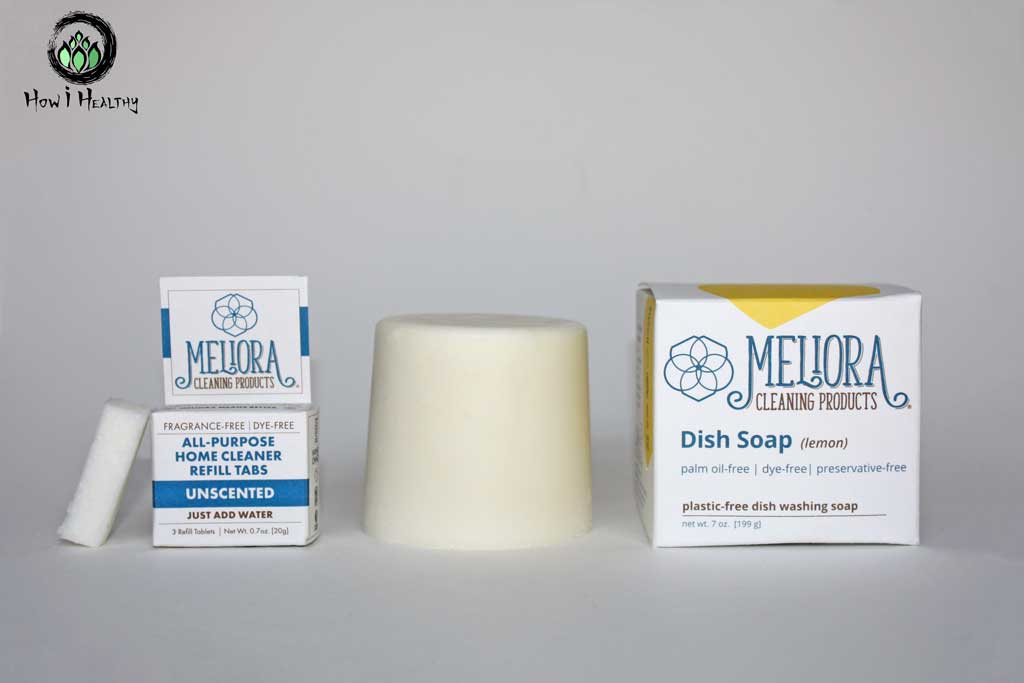
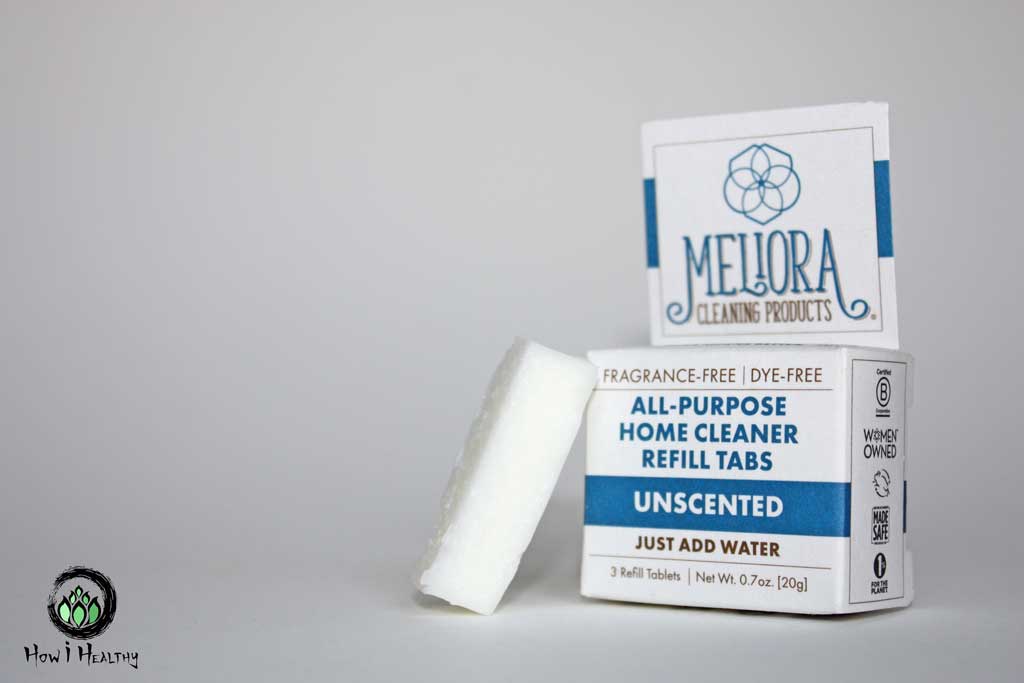
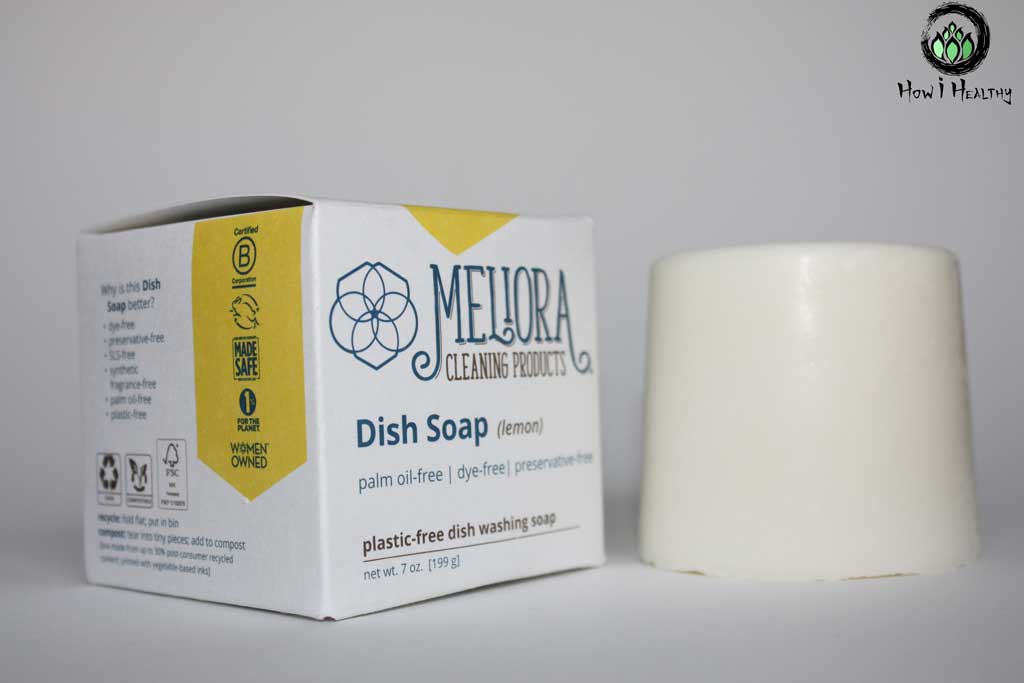
Meliora® is more than natural laundry!
Just check out the super Simple Water-Free Cleaning Guide!
The Takeaway Message

Laundry products have a laundry list of concerns:
- Ingredients: carcinogens, parabens, VOCs, phthalates, and mysterious “fragrances”
- Water-filled formulas: This adds bulk & weight, which means bigger transportation carbon footprints. And if you already have water at home, then it’s unnecessary. Why buy water twice? (Same goes for Water-Free Oral Care too, no toothpaste here.)
- Plastic packaging: Thanks to all that added water. Plastic jugs galore!
- Greenwashing: PVA (polyvinyl alcohol), the film that encases laundry pods or holds laundry sheets, together is actually “dissolvable” plastic. And that works as well as it sounds.
(1, 6, 12, 13, 14, 15, 16)
A bit more about PVA greenwashing. Because it irks me so.
PVA is only biodegrades under specific conditions. Our current water treatment facilities can’t biodegrade PVA or filter it out.
Instead, PVA is introduced into the environment where it hinders oxygen transfer for aquatic animals and releases ethylene (a hormone plants use).
We don’t know how this impacts ecosystems.
There is not enough conclusive data and research documenting the safe use of PVA in laundry products. We don’t even know what we don’t know. (6)
We do know the PVA has been found in breastmilk (17). What does that mean for our health or breastfeeding infants? We have no idea. There’s no research that has explored the health impacts of PVA.
And yet, PVA use in laundry products is increasing (6). There’s toilet pods and dishwasher pods now too!
But here are better options.
Natural laundry that’s water-free, biodegradable, ethically made, plastic-free, and with home compostable packaging exists! Also awesome? It works!
Three amazing products from an amazing company. Just what my Water-Free & Zero Waste Cleaning routine needed.
That’s How i Healthy!
-Artemis
- Berners-Lee, Mike. How Bad Are Bananas?: The Carbon Footprint of Everything. Profile Books, 2010. https://books.google.com/books/about/How_Bad_Are_Bananas.html?id=fCsEvr8lcScC
- “Carbon Pollution from Transportation.” EPA, Environmental Protection Agency, https://www.epa.gov/transportation-air-pollution-and-climate-change/carbon-pollution-transportation
- “Our Story.” Meliora Cleaning Products, https://meliorameansbetter.com/pages/about-us.
- “Sustainability.” Meliora Cleaning Products, https://meliorameansbetter.com/pages/sustainability.
- Meliora Sustainability Report. Meliora Cleaning Products, 2020, https://cdn.shopify.com/s/files/1/0648/0001/files/2020_Meliora_Cleaning_Products_Sustainability_Report.pdf?v=1619023886.
- Rolsky, Charles, and Varun Kelkar. “Degradation of Polyvinyl Alcohol in US Wastewater Treatment Plants and Subsequent Nationwide Emission Estimate.” International journal of environmental research and public health 18,11 6027. 3 Jun. 2021, doi:10.3390/ijerph18116027
- “Packaging.” Meliora Cleaning Products, https://meliorameansbetter.com/pages/packaging
- Meliora Sustainability Report. Meliora Cleaning Products, 2022. https://cdn.shopify.com/s/files/1/0648/0001/files/2022_Meliora_Cleaning_Products_Sustainability_Report.pdf?v=1699391714
- “Laundry Powder Detergent.” Meliora Cleaning Products. https://meliorameansbetter.com/products/laundry-powder-detergent
- “Laundry Oxygen Brightener.” Meliora Cleaning Products. https://meliorameansbetter.com/products/oxygen-brightener-bleach-alternative-booster
- “Laundry Soap Stick.” Meliora Cleaning Products. https://meliorameansbetter.com/products/soap-stick-stain-remover
- Rinaldi, Arturo O et al. “Household laundry detergents disrupt barrier integrity and induce inflammation in mouse and human skin.” Allergy 79,1 (2024): 128-141. doi:10.1111/all.15891. https://pubmed.ncbi.nlm.nih.gov/37766519/
- Bai, Heidi et al. “Contact Allergens in Top-Selling Textile-care Products.” Dermatitis : contact, atopic, occupational, drug 31,1 (2020): 53-58. doi:10.1097/DER.0000000000000566. https://pubmed.ncbi.nlm.nih.gov/31905182/
- Dodson, Robin E et al. “Endocrine disruptors and asthma-associated chemicals in consumer products.” Environmental health perspectives 120,7 (2012): 935-43. doi:10.1289/ehp.1104052. https://www.ncbi.nlm.nih.gov/pmc/articles/PMC3404651/
- Kessler, Rebecca. “Dryer vents: an overlooked source of pollution?.” Environmental health perspectives 119,11 (2011): A474-5. doi:10.1289/ehp.119-a474a. https://www.ncbi.nlm.nih.gov/pmc/articles/PMC3226517/
- Kaniklidis, Constantine. “Toxicities of Laundry Products, Review of Evidence.” No Surrender Breast Cancer Foundation. Janurary 2022. DOI:13140/RG.2.2.30488.72969/2. https://www.researchgate.net/publication/351494142_Toxicities_of_Laundry_Products_-_Review_of_the_Evidence
- Ragusa A, Notarstefano V, Svelato A, Belloni A, Gioacchini G, Blondeel C, Zucchelli E, De Luca C, D’Avino S, Gulotta A, et al. Raman Microspectroscopy Detection and Characterisation of Microplastics in Human Breastmilk. Polymers. 2022; 14(13):2700. https://www.mdpi.com/2073-4360/14/13/2700. https://www.mdpi.com/2073-4360/14/13/2700
